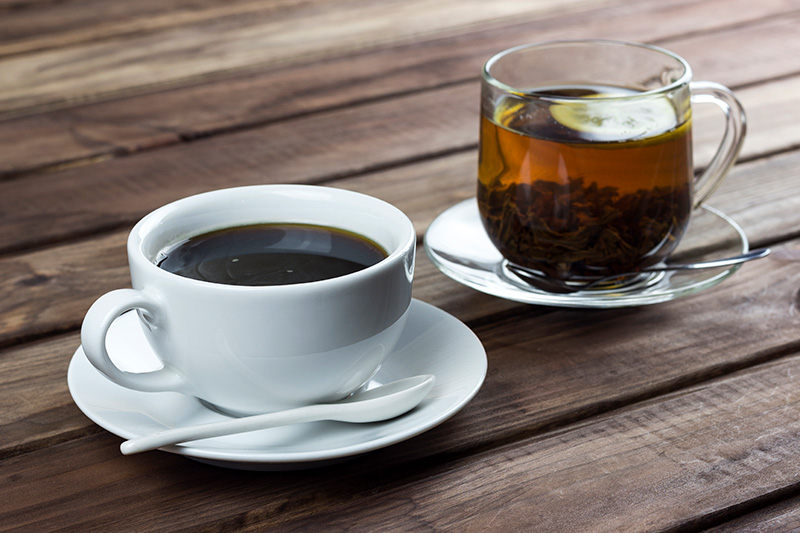More Health and Nutrition Bites
Related
Should you stop drinking coffee as you get older?
Today's research is a bit of a reversal: what happens if you are a habitual coffee drinker, and you stop drinking coffee?
Coffee is brain food
People still seem to think that coffee is bad for you. Perhaps it's our assumption that anything that we enjoy can't possibly be good for us.
Coffee and High Blood Pressure
Coffee may well be the most misunderstood food item - right up there with shellfish. People assume it's bad for them - specifically, that it's bad for their heart - when the available evidence simply doesn't bear that out.
Health & Nutrition Bites
Get the latest health and diet news - along with what you can do about it - sent to your Inbox once a week. Get Dr. Gourmet's Health and Nutrition Bites sent to you via email. Sign up now!
Too much coffee might be bad - for some

The myth persists that drinking caffeinated coffee is bad for you - specifically for your blood pressure. While it's true that consuming the equivalent of a couple of cups of caffeinated coffee has been shown to raise people's blood pressures for a couple of hours, other studies have shown no long term increases in blood pressures in those who drink caffeinated coffee regularly. It may well be protective: not long ago we reported on a study performed in Italy showing that those who drank at least 3 cups of Italian coffee daily were 42% less likely to die of heart disease.
Today's research, however, suggests that there are those who might want to limit their coffee intake: those with high blood pressure (J Am Heart Assoc. 2022;11:e026477).
The Japan Collaborative Cohort Study for Evaluation of Cancer Risk is a prospective study of over 110,000 men and women which began recruitment in 1988. Participants were recruited from 45 communities across Japan and were between 40 and 79 years of age at enrollment.
While all participants responded to detailed dietary, medical history, and lifestyle questionnaires, only a portion underwent health examinations that included blood pressures measured by medical professionals.
As part of the dietary questionnaires the participants were asked to describe their usual coffee and green tea intake, in levels ranging initially from "almost never" to "at least 2 cups per day" for coffee and "at least 7 cups per day" for green tea.
The authors limited their analysis to those whose blood pressures had been measured at the start of the study, had complete dietary questionnaires including the questions about coffee and green tea, and had no history of stroke, heart disease, or cancer. This left just over 18,600 participants.
These participants were grouped by their baseline blood pressures (BP):
1. optimal or normal BP (under 130/85),
2. high-normal BP (130-139 systolic or 85-89 diastolic),
3. grade 1 hypertension (140-159 systolic or 90-99 diastolic),
4. grade 2 hypertension (160-179 or 100-109 diastolic),
5. grade 3 hypertension (180 or higher systolic or over 110 diastolic)
After an average of nearly 19 years of follow-up, the authors reviewed the cause of death of all those participants who passed away, with special interest in those who died of cardiovascular disease.
The authors found that even after taking into account such variables as Body Mass Index, smoking status, education, sex, medications and other health conditions, and consumption of fruits and vegetables, those who drank 2 or more cups of coffee per day were no more likely to die of cardiovascular disease than those who did not drink coffee.
As long as they did not have grade 2 or 3 hypertension.
Those with these higher levels of blood pressures who drank 2 or more cups of coffee per day were over twice as likely to die of cardiovascular disease than those with similarly high blood pressures who did not drink coffee. Those who drank just 1 cup per day were 24% more likely to die.
And green tea? Regardless of their blood pressure, there was no association found between drinking green tea and death from cardiovascular disease, no matter how much green tea participants drank.
What this means for you
This is the first study we've reported on that concluded that there might be a drawback to drinking coffee. There are, however, a few caveats: the researchers didn't ask about caffeinated versus decaffeinated coffee ("decaffeinated coffee was not common") and simply state that "most participants consumed instant or drip brewed coffee during the baseline survey period in Japan."
Nor did they ask about 3, 4, 5, or more cups of coffee, while the questions about green tea went from 0 to 7 or more cups per day. Were some of those drinking 2 or more cups of coffee really drinking 5 per day? We can't know. Further, those who drank more coffee tended to be current smokers and drinkers, eat fewer vegetables, and have poorer cholesterol scores.
All of that said, if you have been diagnosed with stage 3 or 4 hypertension and drink coffee regularly, discuss this study with your physician. They may ask you to cut back.
January 11, 2023
